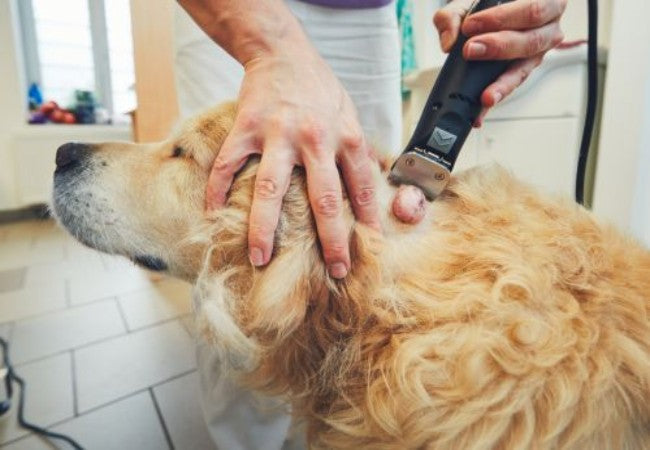Dog Tumors & Cancer in 2025: Vet-Backed Guide 🐾🩺

In this article
Dog Tumors & Cancer in 2025: Vet-Backed Guide 🐾🩺
By Dr. Duncan Houston BVSc
📌 What Is a Tumor?
Tumors are abnormal growths from cells that divide uncontrollably. They can be benign (stay localized) or malignant (spread to other tissues).
🧠 Common Types of Dog Tumors
- Skin lumps: Lipomas (benign fat tumors) and mast cell tumors.
- Oral/oral cavity tumors: Epulides (benign), oral melanoma, squamous cell carcinoma, fibrosarcoma (malignant).
- Nasal tumors: Often adenocarcinomas or sarcomas.
- Testicular tumors: Common in unneutered males (e.g., Sertoli, Leydig cell tumors).
- Visceral tumors: Hemangiosarcoma (blood-vessel cancer), thymoma, intestinal leiomyoma, myocardial tumors.
- Brain/spinal tumors: Meningioma and peripheral nerve sheath tumors.
👀 Signs to Watch For
- New lumps or swellings that persist or grow
- Changes in skin—ulceration, bleeding, itchiness
- Oral issues—bad breath, drooling, difficulty eating, bleeding
- Respiratory signs—coughing, nasal discharge
- Systemic signs—weight loss, lethargy, decreased appetite
🔍 How Vets Diagnose Tumors
- Physical exam and fine-needle aspirate or biopsy
- Bloodwork and urinalysis for general health
- Imaging: X‑rays, ultrasound, CT/MRI to check size and spread
- Thoracic imaging for staging, especially with malignant types
💊 Treatment Options
- Surgical removal: Most common for localized tumors (lipomas, epulides, testicular, mast cell, oral masses)
- Radiation or chemotherapy: Used for aggressive types (mast cell, nasal tumors, oral melanoma)
- Targeted drugs: Tyrosine kinase inhibitors (e.g., for mast cell tumors)
- Supportive care: Pain management, antihistamines for mast cell tumors, fluids
📈 Prognosis by Type
- Benign tumors: Excellent prognosis with removal.
- Lipomas/histiocytomas: Often harmless or resolve spontaneously.
- Mast cell tumors: Variable; grade I–II often cured; III poorer prognosis.
- Oral tumors: Melanoma is highly aggressive; SCC and fibrosarcoma are moderately aggressive.
- Visceral tumors: Hemangiosarcoma—poor prognosis; surgical + chemo extends life slightly.
🛡️ Prevention & Early Detection
- Regularly check your dog’s entire body—including mouth, under skin folds, and testicles
- Follow spay/neuter recommendations to reduce risk (e.g., mammary/testicular tumors)
- Maintain routine vet checkups and discuss any changes
- Biopsy or aspirate new lumps early to determine the nature
- Encourage a healthy lifestyle: balanced diet, weight control, sun protection for light-skinned dogs
📞 When to See the Vet Immediately
- New lump that’s growing or bleeding
- Oral masses affecting eating
- Sudden collapse, collapse, pale gums (could signal internal bleeding)
- Persistent cough, nasal discharge, or unexplained lethargy
Early diagnosis and treatment are essential. Use the Ask A Vet app anytime for quick professional guidance 📱.
🛍️ Supportive Care
To support your dog during and after treatment, explore gentle supplements and comfort items, including healing chews.






